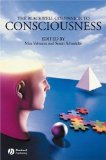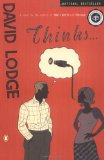Jason Pomerantz shares his review of My Stroke of Insight below. (See also: more of Jason’s reviews)
[If anyone else would like to chime in, please get in touch using the contact form in the sidebar. Reviews or other thoughts are welcome: What are you reading now? What was your favorite book in 2008? Do you have a “top 10 list”?]
It’s hard to give a book a bad review when the person who wrote it is so obviously deserving of sympathy and admiration. Unfortunately, I have no choice with My Stroke of Insight, by Jill Bolte Taylor.
After years of training and working as a brain researcher, Ms. Taylor suffered a major stroke. Enough of her brain remained functional during the event that she was able to consciously decide to study what was happening to her, from the inside. After surgery and eight years of effort she managed to make a full recovery and fulfill her determination to tell her story.
When I learned of this book, I was fascinated. I was looking forward to reading a scientific discussion of the mind/body problem – the nature of consciousness and its relationship to the physical matter of our brain – from a unique perspective.
Ms. Taylor did deliver some of that, particularly at the start. She very effectively describes what she felt and experienced as various parts of her brain shut down. Those sections are fascinating.
Unfortunately, far more of the book is dominated by a New Age haze. It’s filled with discussions of positive and negative energy and our connectedness with the universe. It preaches endlessly that, if only we would all listen to the trillions of molecular geniuses that make up our bodies there would be world harmony and we’d spend our time hugging each other. Something like that, anyway. My mind sort of drifted.
The stroke that afflicted Taylor disabled the left side of her brain. As anyone with even a passing familiarity to neuroscience has heard explained a thousand times each side of our brains serve very different functions. The left more-or-less controls our linguistic and analytical selves, the right our intuitive and holistic. In an ordinarily functioning brain the two hemispheres are connected by a thick bunch of neurons called the ‘corpus callosum’, so much so that we perceive ourselves as one unitary being.
When her left side went out, Taylor’s consciousness became completely dominated by her right brain. She no longer thought in words and she lost the distinction between her body and the rest of the universe. Further, according to Taylor, the left brain controls our ability to weave individual moments of perception together into coherent narratives. Without it, she felt herself completely living in individual moments of time, focused intensely on the now.
If all of that sounds familiar, it’s because what one person calls symptoms, another calls Nirvana. Through a freak medical event Taylor achieved, almost instantly, exactly what mystics and meditators spend lifetimes seeking.
Taylor does a good job conveying her own ambiguity at the experience. She quickly grasps the value of her new state of being: A joy at her sense of oneness with the universe. But she also understands the tragedy of the loss of her rational self, particularly her inability to communicate with others.
It’s an inherently gripping story and parts held me rapt. But then, somewhere around the middle of the book, Taylor takes off the lab coat of a scientist and puts on the robes of a yogi. We hear far less about neurons and MRI’s and cognitive systems and far more about peace, love and understanding and universal compassion and we are all made of star stuff. All noble sentiments, but also very, very dull.
Taylor clearly touched something and she desperately wants us all to share the positive aspects of her experience. But the fuzzy, crunchy granola tendencies of her writing make it all lost in a hippy-dippy fog.
Another odd problem is that, for a brain scientist, Taylor exhibits a bizarre amount of mind/body confusion: She is constantly listening to her brain, and talking to her brain, and ordering her brain around. It all begs the question, what exactly is doing the listening and the talking and the ordering? My left side would like to suggest that it would have been far more clear for her to write that one part of her brain was listening to, talking to and ordering around other parts. But, I suppose, that would have lessened the right brain poetry.
My Stoke of Insight is the rare book that manages to be scientific and New Age at the same time. I’m only sorry there wasn’t more science and less New Age.
On a related note…
For a more consistently interesting discussion of the problem of multiple minds struggling with each other in our brains, read First Person Plural, by Paul Bloom, published in The Atlantic. (Bloom can also be seen in a fascinating Blogging Heads Diavlog with Will Wilkinson.)
[Reprinted with permission from http://www.fiddleandburn.com/me/#6]








